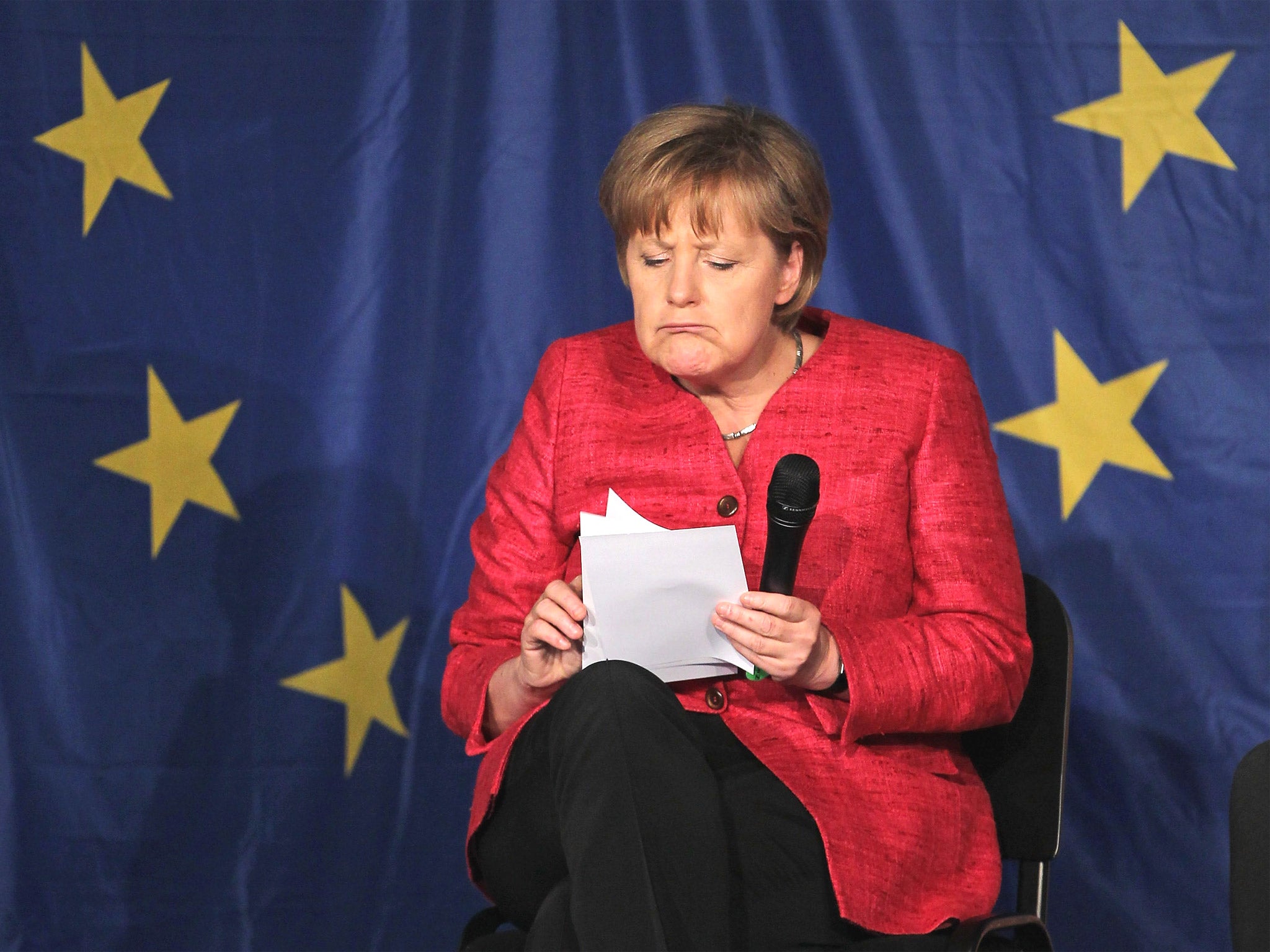A red carpet for Angela Merkel – but don’t expect a ‘bag of presents’, Germany warns Britain
Tony Paterson and Nigel Morris explain what’s going on behind the scenes of the visit by EU's most powerful leader

Your support helps us to tell the story
From reproductive rights to climate change to Big Tech, The Independent is on the ground when the story is developing. Whether it's investigating the financials of Elon Musk's pro-Trump PAC or producing our latest documentary, 'The A Word', which shines a light on the American women fighting for reproductive rights, we know how important it is to parse out the facts from the messaging.
At such a critical moment in US history, we need reporters on the ground. Your donation allows us to keep sending journalists to speak to both sides of the story.
The Independent is trusted by Americans across the entire political spectrum. And unlike many other quality news outlets, we choose not to lock Americans out of our reporting and analysis with paywalls. We believe quality journalism should be available to everyone, paid for by those who can afford it.
Your support makes all the difference.David Cameron cannot count on Chancellor Angela Merkel bringing a “bag full of presents” on her visit to London, German government sources have warned – as the Prime Minister attempts to win her support for reform of the European Union.
Ms Merkel, whose red-carpet treatment will include an audience with the Queen, will deliver an appeal for Britain to remain in the EU and spell out the two countries’ common interests when she addresses both houses of Parliament.
But the German government was playing down hopes of dramatic progress during a 90-minute working lunch between the leaders. A spokesman said: “The expectations being voiced in Britain about the visit are too high.”
Downing Street also portrayed the meeting as a stepping-stone on a long process through to 2017, when Mr Cameron has promised a referendum on Britain’s EU membership if he wins next year’s general election.
As the most powerful politician in the 28-nation bloc, Ms Merkel’s support would be crucial to Mr Cameron’s attempt to renegotiate the terms of Britain’s EU membership ahead of the referendum. Ms Merkel is said to remain convinced that the EU’s internal ties needed to be strengthened rather than loosened if it is to remain strong and competitive in a global economy.
German officials have suggested that any concessions Ms Merkel might offer to Mr Cameron concerning his demands for “repatriation” of powers from Brussels could be conditional on EU institutions being strengthened in return.
The Berlin government is also understood to have reservations about whether the treaty change Mr Cameron wants ahead of the referendum can be delivered according to his timetable.
Politicians from all of Germany’s main parties have voiced deep concern about Mr Cameron’s referendum pledge, not least because of fears that a British departure would severely undermine global confidence in the EU.
Ms Merkel is therefore expected to use her speech in parliament to stress the importance of Britain’s role in the EU, the strength of its influence and the need for its continued membership.
She will allude to both world wars in her address and underline the role the EU has played in overcoming post-war divisions.
But British officials believe there is emerging common ground between London and Berlin over the need for EU reform. Downing Street said the talks would cover economic reform, trade relations with the United States, foreign policy, the crisis in Ukraine and who should succeed Jose Manuel Barroso as the European Commission president.
Mr Cameron would also raise “the importance of powers being able to flow back to member states”. The Prime Minister’s official spokesman said the meeting was part of a “process through to 2017” with a “series of on-going discussions”.
Behind closed doors, the Chancellor is unlikely to endorse Mr Cameron’s demands for greater controls on so-called “welfare tourism” in Europe.
Instead she is expected to stress how all member states have benefited from freedom of movement within the EU and point out it remains a key element in the internal market.
According to a report, Ms Merkel is ready to grant Britain and nine other EU members not in the single currency special protections when the Eurozone is reformed.
While officials in Berlin insisted the personal relationship between the leaders was excellent, they dismissed the idea that the Chancellor’s lavish reception in London signalled a new Anglo-German alliance was about to eclipse the long-standing Paris-Berlin relationship.
“Britain can’t expect that – it’s not in the eurozone,” insisted one source.
Ms Merkel will also meet Ed Miliband, the Labour leader, and Nick Clegg, the Liberal Democrat leader, during her visit to London.
Join our commenting forum
Join thought-provoking conversations, follow other Independent readers and see their replies
Comments